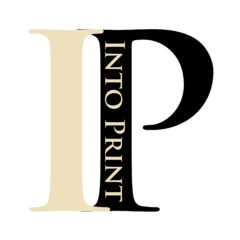The colour of self-publishing has turned out to be green
Self-publishing is surely the ‘greenest’, most sustainable, way of printing and distributing books. It’s not clear that the book distributors who first devised the idea of print on demand (POD) were thinking about the environment and some form of sustainable publishing. Rather, they were more likely thinking about globalisation and how to efficiently make books available everywhere in the world.
Distributing a single book ‘virtually’ to anywhere in the world luckily turns out to be much more sustainable than printing lots of books in one location and moving them in containers to hubs and then onwards to bookshops and readers.
Long-life books
Self publishing authors can rest assured that they are going into print as sustainably as possible. The books have a long life ahead of them. In addition, the print on demand process uses paper materials that are recyclable and cuts down delivery mileage.
Cover lamination helps prolong the ‘shelf-life’ of a book by protecting it from damage and spillage. Readers are constantly interacting with the surfaces and binding of a book, and a non-laminated cover won’t survive for long. The prolonged life provided by lamination results in a vigorous second-hand market for books, in charity shops and in online marketplaces such as Amazon and Ebay. We are all familiar also with book swap boxes in doctor’s surgeries and holiday homes.
All of these opportunities for re-use mean that each book does its job not just once, but many times over. That’s making the most of the original energy and materials that went into its manufacture.

There’s always more to do of course. The lamination (used to protect a book’s cover) may restrict the re-use of the paper board. However, there are already laminations based on plant material that can be recycled and POD books are likely to benefit from these in the future.
Hardbacks are another super-efficient way of reaching multiple readers from a single copy of a book, through their re-use in public and academic libraries for example. Into Print sends metadata about an author’s book to the librarians, who can read details and see previews of a book on screen to check its suitability for their readers.
No-waste and low mileage
The POD factory only prints to order so there is no wastage. A reader enquires at a library, gets a steer from a friend, asks at a bookshop, or browses his or her favourite online bookseller. The resulting electronic order triggers the POD factory to print and bind a book. It does this by referencing the PDF artwork associated with the unique ISBN of the book, which is stored in its PDF database.
The factory is local to where the order was placed and so the printed book now travels the least possible distance. This one book – it could be your book if you are an author using Into Print – travels to the library or bookseller in the same box as a lot of other books collated from many different publishers and independent authors at the POD factory. This wholesaling process also minimises the environmental cost of transport.
Forest-friendly and recyclable
The paper used in the main POD factories have Forest Stewardship Council (FSC) chain of custody certification. The FSC Chain of Custody (CoC) system allows the tracking of FSC certified material from the forest to the consumer. By signing up to certification, the POD factories help independent authors create books that are produced responsibly. In turn, this helps readers when they are deciding to consume books responsibly.
The Earth911 website has good news on inks, suggesting that most inks used in printing are based on soy or other vegetable oils. Although soya bean growing is debatable in itself, this does mean that the paper and ink can be recycled together and that the paper can go back into the production of another paper-based product such as kitchen roll.
Although at Into Print we like the colour green, we don’t use it exclusively in our designs. Nevertheless we are happy that all of our books have green credentials and contribute to sustainable publishing. If we can help you do the same, please fill in our form to request a free quotation.
